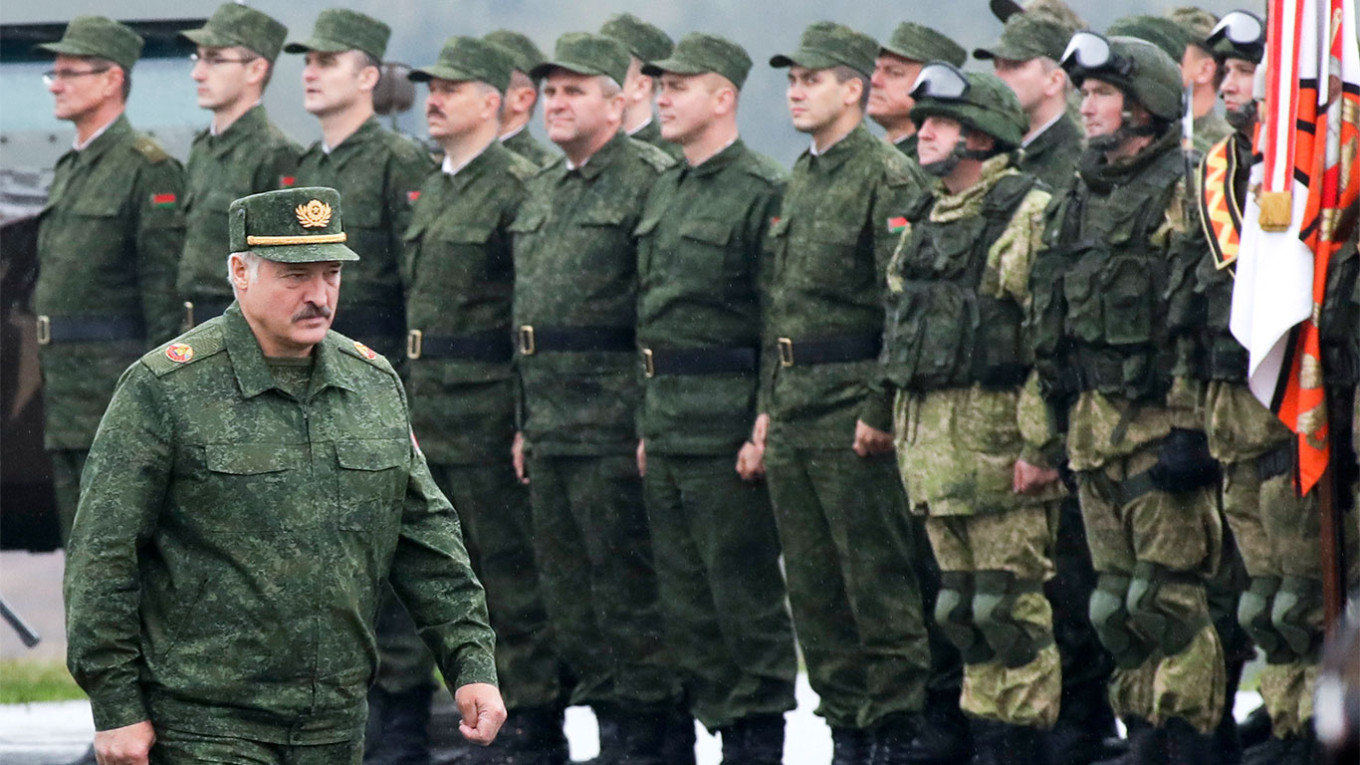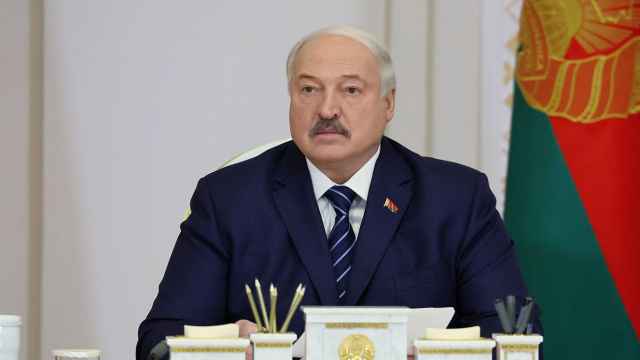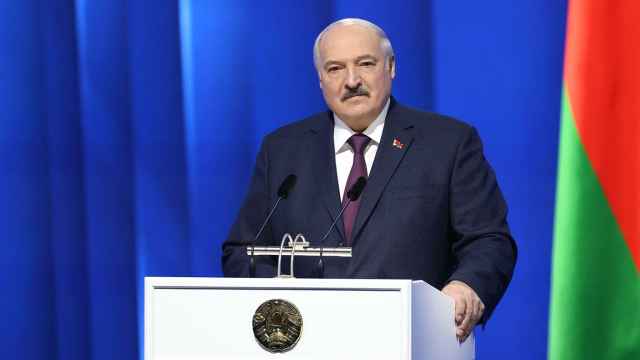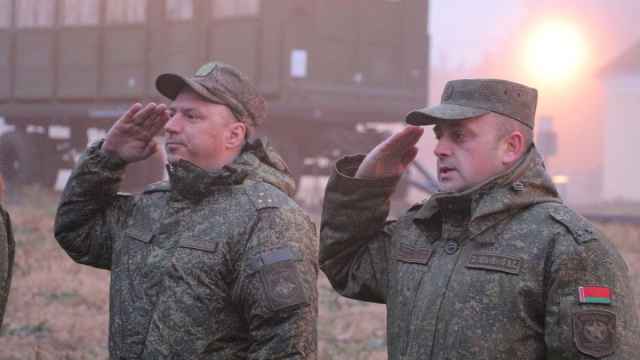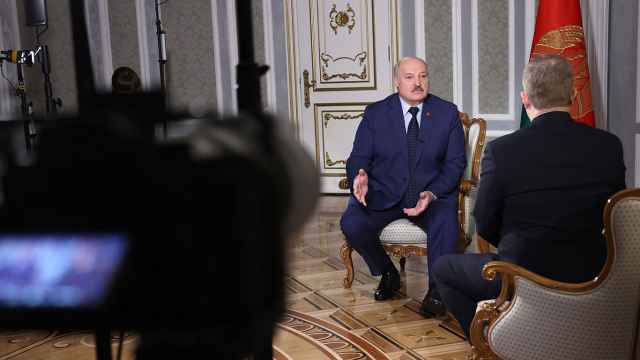Belarusian President Alexander Lukashenko claimed Monday that Ukraine was readying an attack on Belarus and announced the formation of a “joint military group” with Russia.
“Ukraine is not just discussing but planning strikes on the territory of Belarus,” Lukashenko, a close ally of Russian President Vladimir Putin, said during a meeting with security officials, according to state news agency Belta. “If you want peace, you have to prepare for war.”
While Belarus has been a staging ground for Russian forces — both ground troops and missile launchers — since the start of the invasion of Ukraine, Lukashenko’s announcement sparked international concern that Belarus could soon take a more active role in the fighting.
Lukashenko said Belarus and Russia have been readying troops in recent days, claiming the preparations were in accordance with the two countries' Union State alliance.
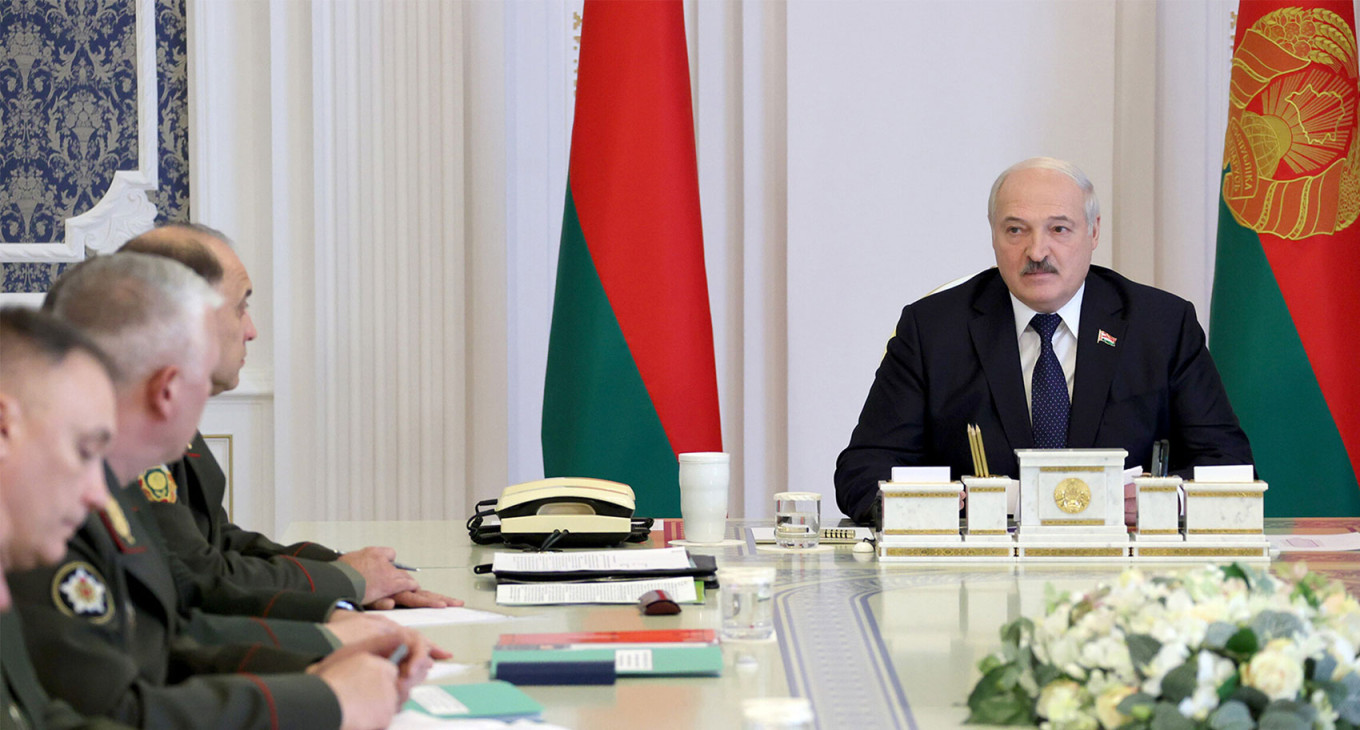
What is Russia and Belarus’ Union State alliance?
Belarus and Russia, which share a 1,200-kilometer border, signed the “Union State” treaty in 1999 and have since taken steps toward political, military and economic integration.
According to the treaty, if either Russian or Belarusian territory comes under threat, the Union State can set up a joint military unit for self-defense.
Though Lukashenko did not provide any evidence Kyiv is planning to attack Belarus, his public warnings of an imminent threat lay the groundwork to set up the joint force.
How many troops will be assembled?
“We should not expect a large number from the Russian Armed Forces. But it will be more than 1,000 people," said Lukashenko.
Russia’s heavy losses in over seven months of war in Ukraine mean it is unlikely to be able to commit many men, said defense analyst Konrad Muzyka from the Poland-based Rochan Consulting group.
Therefore, the bulk of these troops will likely be provided by Minsk.
Belarus has about 45,000 soldiers, 60 aircraft and 600 tanks, according to a 2021 report by Muzyka for the Estonia-based International Center for Security and Defense think tank.
But, according to Muzyka, who has been tracking Belarusian military movements since March, the Belarusian units that would be committed are inexperienced and relatively weak.
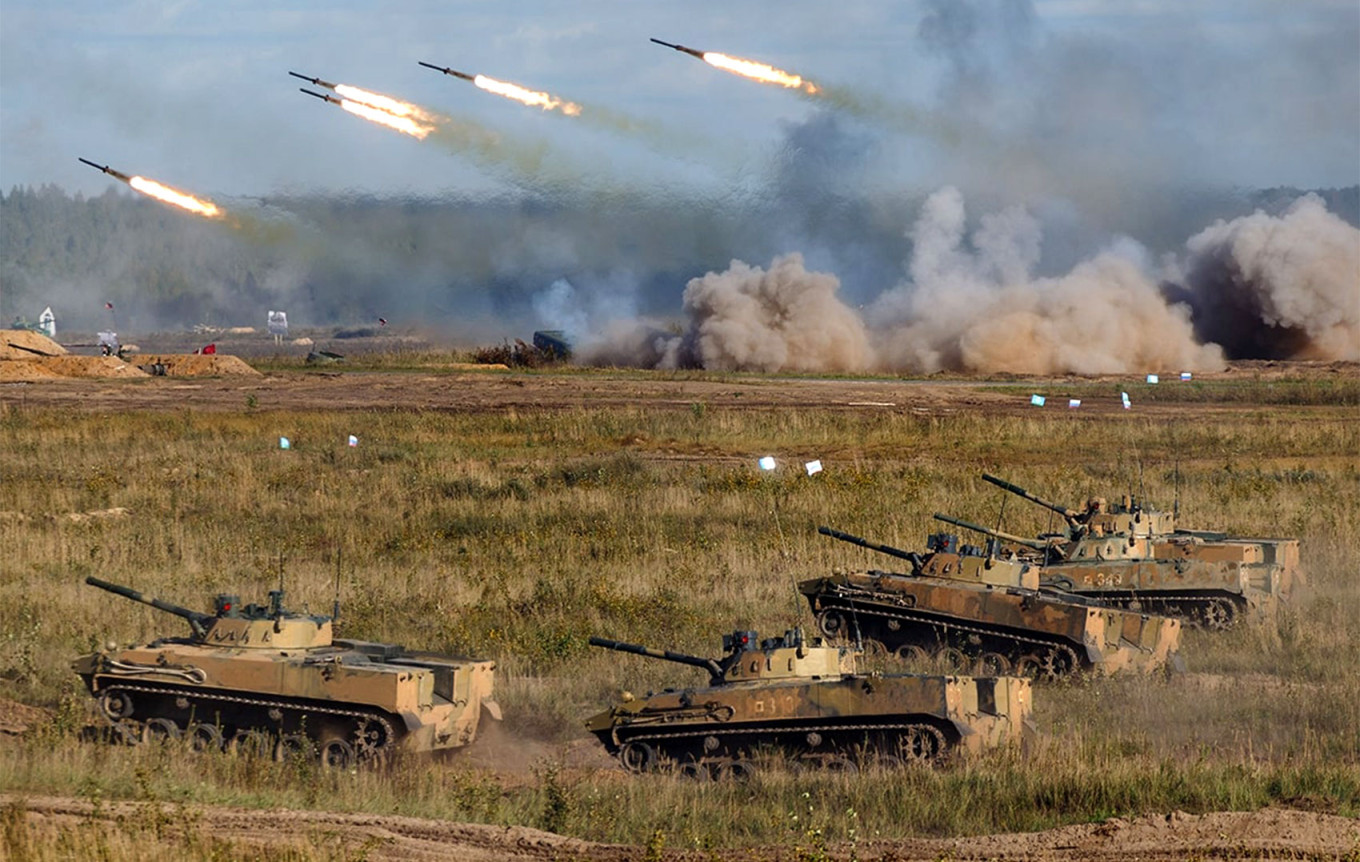
Where will they go and what will they do?
Unclear. The joint force will be purely “defensive” and will be sent to Belarus’ border, Belarusian Defense Minister Victor Khrenin said Tuesday.
“We emphasize once again that the tasks of the Regional Grouping of Forces are purely defensive. And all activities carried out at the moment are aimed at providing a sufficient response to actions near our borders," Khrenin said in a statement.
This could mean Union State forces are sent to defend Belarus’ western border with European Union and NATO members Poland, Lithuania or Latvia — or to the country’s southern border with Ukraine.
Sending troops south and feeding rumors of a military intervention could be an attempt to tie up Kyiv’s forces, according to Muzyka, helping to reduce pressure on the Russian military as it continues to be forced back by Ukraine's counteroffensive.
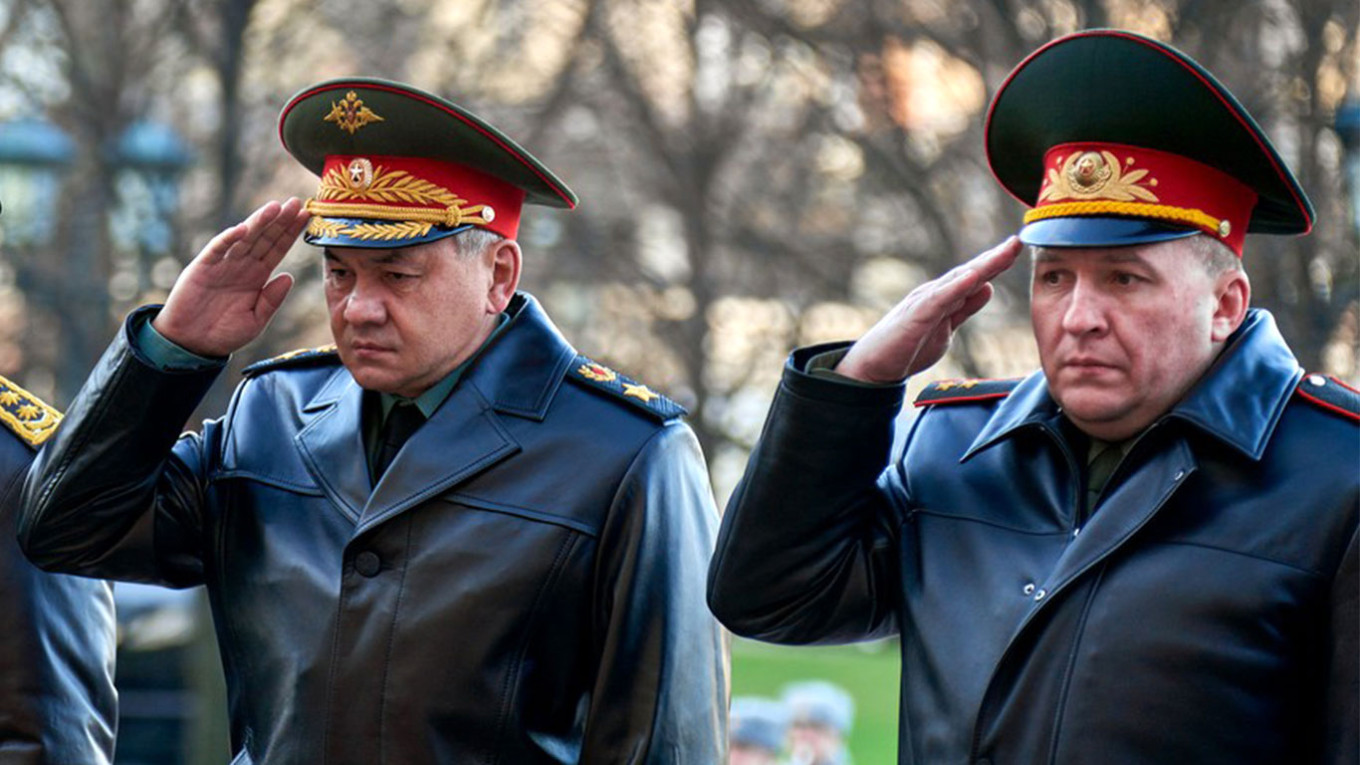
What has been Ukraine’s response?
President Volodymyr Zelensky told a meeting of G7 leaders Tuesday that Russia was seeking to drag its ally Belarus into the war in Ukraine.
"Russia is trying to directly draw Belarus into this war, playing a provocation that we are allegedly preparing an attack on this country," Zelensky said, calling for international observers to be placed on the Ukraine-Belarus border "to monitor the security situation."
Could this be the start of a wider Belarusian war with Ukraine?
While an attack on a NATO country is extremely unlikely, Lukashenko’s announcement could mean Minsk is gearing itself up for a more direct role in support of Russia in Ukraine.
In one possible scenario, claims of an imminent Ukrainian attack on Minsk could be part of a false-flag operation designed to build public support for a military move by Belarus.
But for the moment, it’s too early to be able to guess Lukashenko's real goals, Muzyka said.
AFP contributed reporting.
A Message from The Moscow Times:
Dear readers,
We are facing unprecedented challenges. Russia's Prosecutor General's Office has designated The Moscow Times as an "undesirable" organization, criminalizing our work and putting our staff at risk of prosecution. This follows our earlier unjust labeling as a "foreign agent."
These actions are direct attempts to silence independent journalism in Russia. The authorities claim our work "discredits the decisions of the Russian leadership." We see things differently: we strive to provide accurate, unbiased reporting on Russia.
We, the journalists of The Moscow Times, refuse to be silenced. But to continue our work, we need your help.
Your support, no matter how small, makes a world of difference. If you can, please support us monthly starting from just $2. It's quick to set up, and every contribution makes a significant impact.
By supporting The Moscow Times, you're defending open, independent journalism in the face of repression. Thank you for standing with us.
Remind me later.



